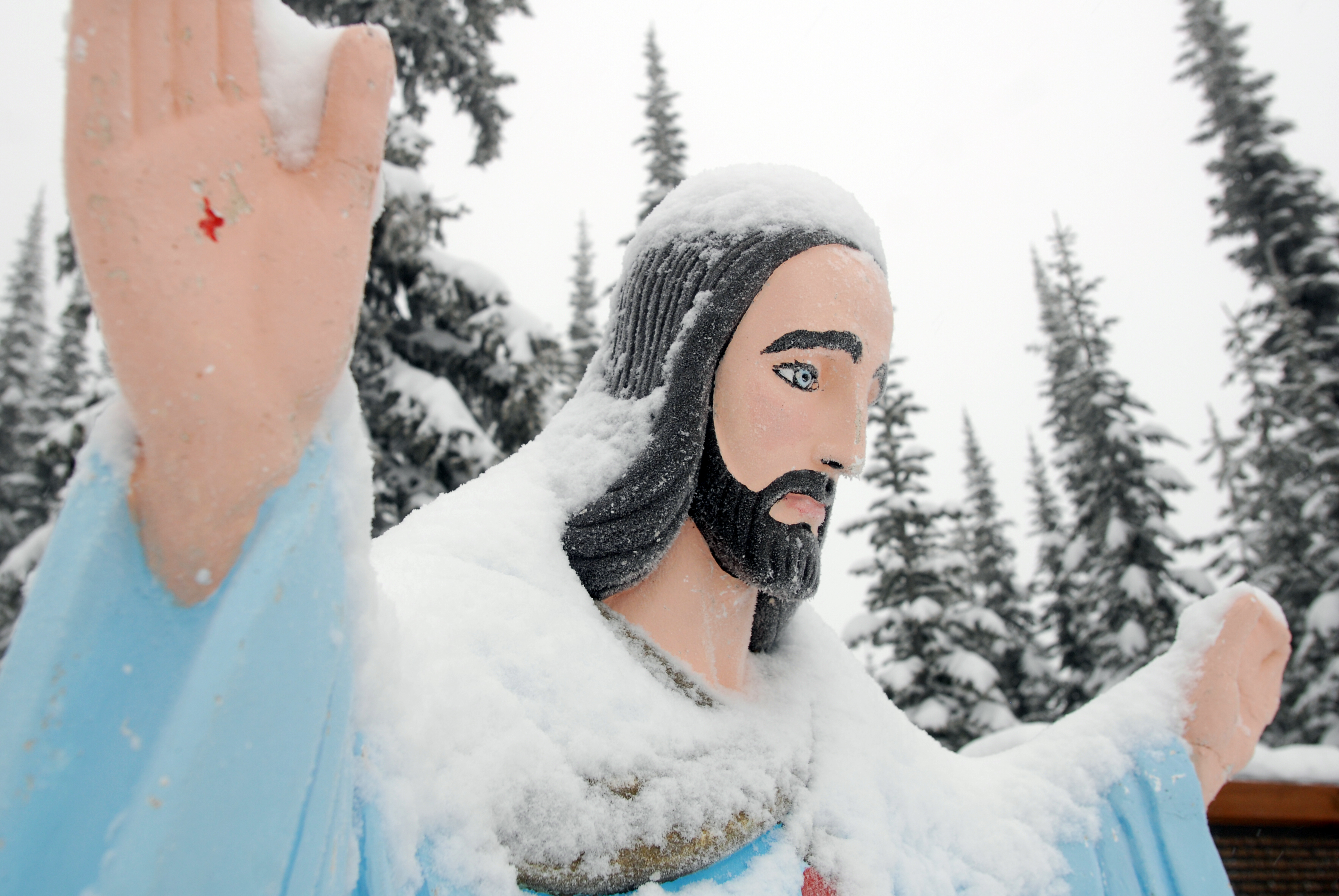Group Will Not Appeal Big Mountain Jesus Case
Religious freedom group concedes efforts to remove iconic Jesus statue from atop Big Mountain
By Justin Franz
The atheist group seeking to remove an iconic statue of Jesus from atop Big Mountain in Whitefish will not appeal its case to the U.S. Supreme Court, effectively ending a years-long battle over whether the religious figure’s occupation of public land is unconstitutional.
The fate of the 6-foot-tall Jesus statue perched along a ski run at Whitefish Mountain Resort has been in flux for years as the Wisconsin-based Freedom From Religion Foundation has fought to sideline the figure, which occupies a swatch of federal land and thus raises a First Amendment quandary.
The group originally sued the U.S. Forest Service in 2012, but lost its case following a Missoula federal judge’s ruling that the statue does not raise any First Amendment issues. The group appealed the ruling to the Ninth Circuit Court of Appeals, which sided with the lower court’s decision.
The Freedom From Religion Foundation had 90 days to appeal the decision to the U.S. Supreme Court, but the group’s co-president, Annie Laurie Gaylor, said it opted against it soon after the appellate court rejected its request for a rehearing. However, Gaylor said she believes that the statue erected near the top of Whitefish Mountain Resort’s Chair 2 will eventually come down.
“I think we’ll eventually have a court that will say that these religious statues have to come down,” she said. “We think reason will prevail on the court.”
A local chapter of the Knights of Columbus installed the Jesus statue in 1955 after the group’s members applied for a special-use permit from the Forest Service because Whitefish Mountain Resort is located on a portion of the Flathead National Forest. In its application, the group described the statue as a memorial to soldiers who died in World War II. Since then, the statue has been designated an historic landmark and is commonly used as a meeting place at Big Mountain.
In its original lawsuit against the Forest Service, the Freedom From Religion Foundation alleged the federal agency was endorsing religion by issuing the permit. As the case rose through the court system, first in U.S. District Court and then in the Ninth Circuit Court of Appeals, the community mounted local support and flooded the Forest Service with letters insisting the statue be left alone.
In 2015, a three-judge panel rejected the group’s appeal, ruling that the statue did not violate the Establishment Clause. The judges wrote that the statue held “cultural and historical” significance and that the Forest Service was not endorsing religion by allowing it to stand.
According to Gaylor, attorneys for the Freedom From Religion Foundation decided not to file an appeal with the high court because they believed they would not prevail given the makeup of conservative and liberal justices.
Gaylor said she believes that if the legality of other religious statues is successfully challenged, the court will have to revisit the case of Big Mountain Jesus.